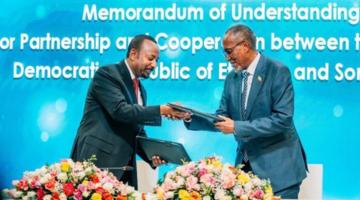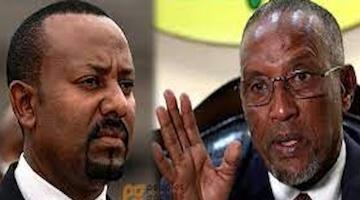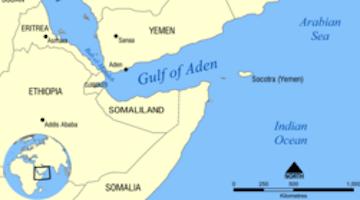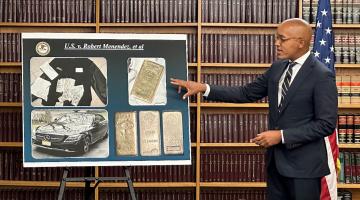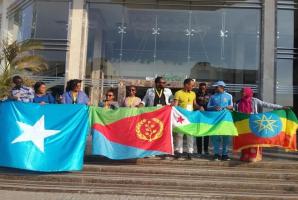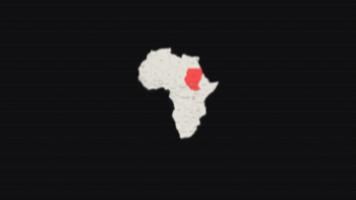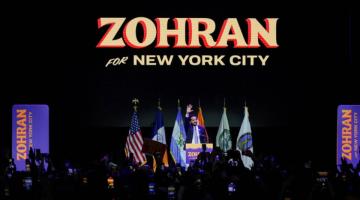Rasmus Sonderriis's book is a thorough exposé of the West's destructively deceitful narrative about Ethiopia's two-year Tigray War.
Danish journalist Rasmus Sonderriis has spent seven of the last nineteen years living in Ethiopia, beginning in 2004. He just published “Getting Ethiopia Dead Wrong,” a free Substack e-book, in which he gets it dead right.
This is his account of Western media and officialdom’s disgraceful and deeply damaging deceptions and distortions about the November 2020 to November 2022 Ethiopian civil war, which is now commonly known as the Tigray War.
Cutting straight to the chase, he notes that the war began when the Tigray People’s Liberation Front (TPLF) attacked the Northern Command base of the Ethiopian National Defense Force on November 3, 2020, and the government responded, as any government would, by sending in troops to reestablish its legitimate monopoly on the use of force.
However, as Sonderriis notes, the dominant international press, including all those outlets he had long revered, began reporting that the war began when Prime Minister Abiy responded to an attack or even “an alleged attack.”
Even more recently, on September 12, 2023, nearly three years after the outset of the war, a new Amnesty International report states, “The armed conflict in Ethiopia’s Tigray region, which later extended into neighbouring Amhara and Afar regions, began on 4 November 2020 when Prime Minister Abiy Ahmed launched a ‘law enforcement operation’ against TPLF-led security forces in the Tigray region, following an attack on the Ethiopian National Defense Force’s Northern Command based there.”
Was Prime Minister Abiy supposed to stand down to avert a war? By that logic he should have let the TPLF march on Addis to reclaim the tight grip on power that they’d held for 27 years before being removed by a popular uprising in 2018.
“At the time,” Sonderriis says, “the opinion of the EU, US and all the major media was that Ethiopia should refrain from any military mobilization, thus not opposing the march on Addis. Even though Biden's special envoy, Jeffrey Feltman, called the potential fall of Addis ‘a bloodbath situation’.”
Never once did the West call on the TPLF to stop fighting and disarm.
Why did the world’s rich and powerful liberal democracies and their press turn on a promising, liberalizing, fledgling democracy like Ethiopia? That is a mystery that Sonderriis tries to unravel as he painstakingly recounts every unverified allegation of genocide, rape, extrajudicial execution, and starvation that Western press, officialdom, Human Rights Watch, and Amnesty International launched at Ethiopia and its ally Eritrea throughout the two-year war. He points to the collaborative effort of legacy Western press and Western governments as the source of a massive disinformation campaign that has shaken his worldview to its foundation.
“But,” he writes, “is it really so delusional to think that the West would support an elected leader with a liberal reform agenda against an armed assault by the dictatorial old guard? The answer turns out to be: yes, totally delusional!”
#Tigray Genocide
Sonderriis points to the many times justification was handed to the TPLF with the #TigrayGenocide hashtag and allegation. This placed them not in a battle to seize power illegally but in a battle for their very survival, a battle against extermination, a battle they had no choice but to wage:
“Equating anti-TPLF with anti-Tigrayan, anti-party with anti-people, must be the oldest trick in the book of authoritarian scoundrels. The TPLF, however, refined the concept by framing political adversaries as nothing less than genocidal as early as 2005, when its strongman, Prime Minister Meles Zenawi, faced with complaints of ethnic favoritism, called the opposition “Interahamwe” (after the perpetrators of the Rwandan genocide).
“The hashtag #TigrayGenocide was launched exactly as the first shots were fired on the Northern Command bases. Clearly, the accusation that this was about a genocide was prepared before any Ethiopian act of war.”
Again and again, as he goes through every step of the misinformation war, he returns to this description that became a mantra in the Western press, and in the mouths of Western pundits, who repeated that the TPLF had no choice but to fight for their very survival.
However, as he writes, the TPLF ultimately had to face military defeat—not extermination—two years later. In fact, the TPLF are firmly back in power in Tigray Region, despite starting and waging a war that cost tens of thousands of lives, displaced millions of people, and did enormous property and infrastructural damage in Tigray, Amhara, and Afar Regions. The war was devastating, as most wars are, but it didn’t end in genocide, as had been so urgently warned. It ended in a negotiated peace that even allowed the TPLF to survive and thrive.
Has anyone apologized for promoting the genocide narrative used to justify so much death and destruction? Not that Rasmus Sonderriis or I know of. Not Samantha Power, Alex de Waal, Martin Plaut, Kjetl Tronvoll, Mirjam Van Reisen, or Paul Kagame. Not The Guardian, the BBC, Aljazeera, the New York Times, the Washington Post, CNN, the Globe and Mail, The Nation, Democracy Now, or the United States Holocaust Museum.
And not Getachaw Reda, the new Chief Administrator of the Interim Regional Administration of Tigray, or Debretsion Gebremichael, who remains as head of the TPLF, and the President of the Tigray Regional State. Despite their claims that they had no choice but to fight to the death, they’re still standing, right back in power in Tigray.
The Single Story about Africa
Throughout his book Sonderriis warns of the West’s single story about Africa, the story of tribal rage and genocide that obliterated the realities of a legitimate, duly constituted state fighting an illegitimate attempt to seize power by force. As he writes this says more about us than it says about Africa:
“I continue to believe that a home-grown democracy along with the old-school definitions of human rights and equality are universal values. Violence against the state can be justified only as a very last resort to achieve these ends. My ideals have not changed. But my worldview has been shattered. Putting it back together remains a work-in-progress, though one conclusion is clear: the Western narrative about the war in Ethiopia says a lot more about the West than it does about the war in Ethiopia.”
Ann Garrison is a Black Agenda Report Contributing Editor based in the San Francisco Bay Area. In 2014, she received the Victoire Ingabire Umuhoza Democracy and Peace Prize for her reporting on conflict in the African Great Lakes region. She can be reached at ann(at)anngarrison.com. Please help to support her work on Patreon.
Rasmus Sonderriis is a Danish foreign correspondent with many years of experience reporting from Chile and Ethiopia. He lives in Ethiopia. His book “Getting Ethiopia Dead Wrong” is currently free on Substack at https://rsonderriis.substack.com/p/getting-ethiopia-dead-wrong.





